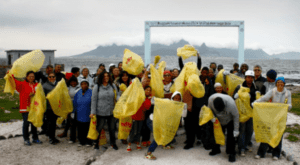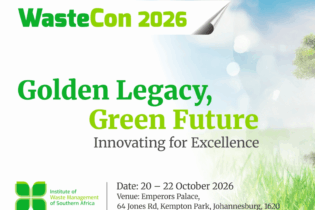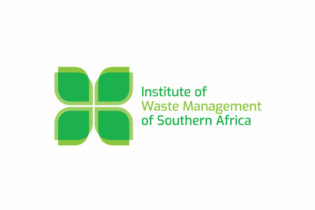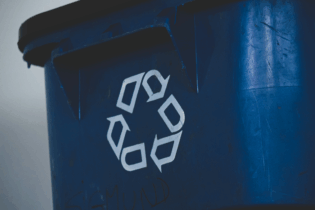
Volunteers for International coastal clean up day 2017 on Robben Island
This was the 21st year in which South Africa participated in the annual ICC event with Plastics|SA coordinating more than 400 beach clean-up points around the Cape and 40 in KZN in partnership with the KZN Marine Waste Network members on Saturday alone.
Despite inclement weather experienced in Cape Town on the day, Douw Steyn, Sustainability Director for Plastics|SA suggested that 2017 would be remembered for having one of the best turn-outs of volunteers who freely offered up their time to participate in picking up litter from our beaches.
“We will only have the official stats of the amount and type of litter collected later this year once all the audit sheets have been compiled and analysed, but we can definitely say that we saw an increase in the number of community groups, schools and businesses who participated in this year’s ICC,” he said.
Beaches still a hotspot for litter
Although extensive education and communication campaigns have been taking place over the past few years, volunteers agreed that they were shocked to see how much litter is still found on our country’s beaches.
Packaging continues to be a major culprit and items such as straws, sweet wrappers, chips packets, earbuds and cigarette butts were found strewn across coastlines.
“Approximately 75% of ocean litter is derived from land based waste. Without effective waste collection, an avalanche of debris enters the ocean. Even a packet that is carelessly thrown out of a car window thousands of kilometres inland, could eventually find its way to the ocean,” Steyn explained.
Effective waste management needed
Steyn added that there is a need to address the importance of an effective waste management system upstream and increase efforts to educate the public about the importance of recycling.
“Plastics are not the problem. People not discarding their used plastics products properly or ensuring it gets recycled, is the issue that needs to be addressed,” Steyn advocated.
He concluded by thanking all who were involved in this year’s activities.






